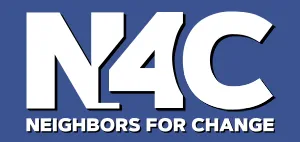
In May of 2024, I was sitting in an auditorium as my daughter’s high school graduation began. The principal, teachers, and other Henrico County Public School luminaries stood on stage, ready to celebrate this momentous occasion. Dressed in her light blue cap and gown, my daughter rolled across the stage in her power wheelchair to receive her diploma.
My daughter has a neuromuscular condition that has weakened her muscles since early childhood. She also struggles with balance and coordination. Her disability became apparent mere days before she started kindergarten. At that time, she could walk, but as the years passed, she needed leg braces, a walker, and then a wheelchair to safely navigate her environment.
All the obstacles in my daughter’s path could have doomed her academic success, but they did not. On the graduation stage, she accepted her advanced diploma to a roar of applause. Tears of joy welled up in my eyes. I felt immensely proud of her, along with waves of relief and gratitude.
That extraordinary moment didn’t just happen. My daughter’s achievement took enormous effort, not only from her, but also teachers, principals, therapists, doctors, instructional aides, and others. All of them believed in the concept of basic human dignity. They didn’t see her disability as a death sentence, but rather as their duty to provide support.
Federal funding for special education programs also played a huge role in my daughter’s success. Her schools had procedural safeguards in place for regular evaluations and educational placement. The Individuals with Disabilities Education Act (IDEA), Section 504 of the Rehabilitation Act, and Title II of the Americans with Disabilities Act (ADA) ensured she had all the resources she needed every step of the way.
My daughter qualified for a 504 Plan, which meant she required physical accommodations. One of the accommodations involved staff carrying her backpack and walker so she could easily wheel herself throughout the school. Additionally, preferential seating near the classroom door addressed her limited mobility.
When she attended middle school in a two-story building, she had elevator access because by then she lacked the muscle strength to climb stairs. Additionally, the school provided her with physical therapy to help her sustain mobility and mitigate falls.
School is challenging enough on its own, so the accommodations meant my daughter could focus on learning rather than disability hurdles. She could enjoy the thrill of performing on stage in theater class, cosplay her favorite character for a book report, and geek out on her science projects. I benefited, too, because her academic team’s dedication gave me a peace of mind that was truly priceless.
As time passed, my daughter’s accommodation needs evolved. When HCPS fast-tracked its virtual academy in response to the Covid-19 pandemic, I enrolled her with lightning speed.
Virtual school saved my daughter loads of time and energy, but more importantly it helped her avoid Covid-19. By the time she started high school, her lung function had weakened to the point that Covid-19—or a serious respiratory infection—could put her in dire straits. Despite the stress of the pandemic, her grades went from good to A+ great across the board. Yet again, outstanding school support contributed to her success.
The last accommodation my daughter’s school provided was to give her the first spot in the graduation procession line. That strategy helped her easily navigate the auditorium. Think about that continuum of care: HCPS provided accommodations to my daughter from the day she started kindergarten to the day she graduated. It doesn’t get any better than that.
Her academic journey demonstrated how federal law helps students with disabilities achieve remarkable goals. My daughter had top-notch educators who would have gone above and beyond to help her no matter what, but not every school district has the same resources. That is why federal oversight, support, and funding is necessary in public education.
Now that you’ve learned about my daughter’s success story, I ask only one thing of you: remember.
As the Trump Administration dismantles the U.S. Department of Education before our very eyes, remember that time not too long ago when society forced disabled people into miserable institutions and left them to rot. We must not commit that kind of evil again.
Remember my daughter’s positive experience because her situation exemplifies the public school system at its best. The dense nature of government bureaucracy sometimes obscures the lived experiences of the people it serves. Yet to me, my daughter is the crystal-clear human face of federal enforcement tools—and her life is proof that they can work wonders.
Take Action
- Contact Congressman Rob Wittman (R-01) and let him know you want him to take action to save the DOE.




